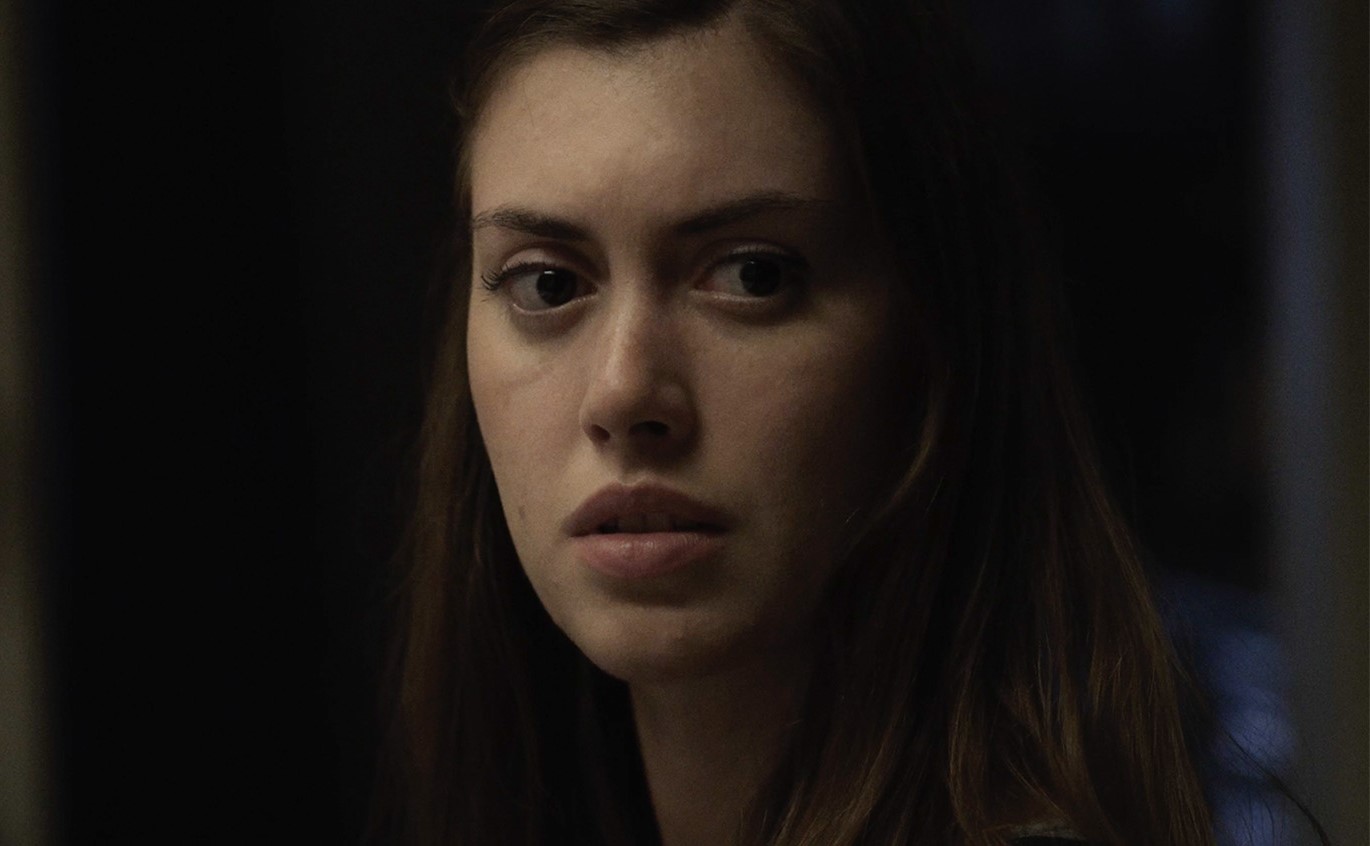As part of its programme for 2019, Dead by Dawn is hosting several short film programmes in order to showcase talent from around the world. One Big Happy Family, as a collection, focuses on the horrors that can come about from familial ties. The horror genre has long been obsessed with transgressing the boundary between the home and the rest of the world, deconstructing the notion of the ideal family and exploring what happens behind closed doors. As such, this collection of shorts from a multitude of different sub-genres aims to make viewers look at their own families in a more positive light – the result of which is somewhat mixed.
The programme opens with Walter, an Australian-set horror-comedy that focuses on a hippy couple attempting to explain to a gun-toting, right-wing family that they have accidentally killed their dog. Director Dave Wade’s use of close-ups and fixed angles really captures the sense of self-entrapment through politeness, as the couple find themselves being introduced to every member of the family. As the situation slowly spirals out of control, however, the cast members successfully switch from the pleasant humour to the dark undertones that are prevalent throughout. Despite its tension, the decision to subvert this means that Walter is certainly more comedy than horror, effectively being little more than a sketch that leads to an almost farcical climax. Regardless, it is certainly humorous and it helps to create a lighthearted tone which is a pleasant start to the proceedings, despite being short-lived.
Remaining in Australia, Maggie May tells the story of two sisters – the eponymous lay-about Maggie May and go-getter Sam – as they attempt to handle the affairs of their deceased mother. Sam quickly falls and mortally wounds herself in almost comical fashion, but what follows is anything but. As Sam slowly bleeds to death, Maggie, unsure of what to do so choosing to do nothing, continues her life of squalor around her. The grotesque imagery depicted by director Mia Kate Russell, combined with the steady drone of Sam’s breathing and the cries of her babies, makes for truly uncomfortable viewing. Unfortunately not every decision is a successful one, with the attempt to pad the very simple narrative with backstory and hallucinatory visions not quite paying off. Although this adds a greater level of tragedy, it also muddles the whole affair, often cutting the tension short and lessening the impact.
Special Day is next, a short (and anything but sweet) American ghost story focusing on the pressure from one’s family to be highly successful (or go insane trying). The film focuses on Emily, who, on her birthday, becomes privy to her family’s secret to success: a Slender Man-like figure who stalks each member, essentially serving as heightened motivation. The creature is certainly unsettling, as are the rest of Emily’s too-perfect family; unfortunately the audience are not given enough time to really bask in any of this. The shortest film on the programme, Special Day aims for an abrupt and punctual ending, but ultimately loses any sense of tension and the suspense never really picks up as a result of this rapidity. The result is a rather flat film which nonetheless has potential to be expanded into something more.
Thankfully, the programme finds its feet again with its highlight: Helsinki Mansplaining Massacre, a Finnish splatterhouse black comedy, which wholly embraces its campy elements while also exploring the horrors of toxic masculinity and misogyny. Following Julius and Essi after they crash their car and are given shelter by a group of men living in isolation, the film explores Essi’s violent escape from her new personal hell where she is mocked and ridiculed by the men around her. Director Ilja Rautsi creates a deeply claustrophobic atmosphere many women will be familiar with as Essi becomes outnumbered by the horde of zombie-like dude-bros attempting to mansplain female bodily functions (amongst other things) to her. Simultaneously, there is a great deal of self-awareness to be found here, as Rausti riffs on gender subversion as well as notions of traditional family values to parody traditional horror tropes. There is also a healthy respect for the schlocky history of splatterhouse horror which, when combined with everything else, results in a gory experience that is, at times, discomforting but nonetheless triumphant.
Closing the programme is The Daughters of Virtue, an ode to Hammer horror which sees an all-female prayer group descend into religious fanaticism in an attempt to exorcise the demon believed to be possessing one of their members. Examining the expectations that come with traditional family values in a manner not dissimilar to Helsinki Mansplaining Massacre, this film is also very much aware of those which came before it. The Daughters of Virtue oozes its 1970s aesthetic and a wonderfully retrograde feeling permeates throughout, making it a joy to watch. Similarly, the tension is rampant and is only enhanced by the superb performances by the women at the centre. Sadly, it is far too short-lived, as the denouement is incredibly abrupt and rather dissatisfying. Like Special Day, it is a film that would benefit greatly from being a bit longer, and even has great potential as a feature-length film.
Ultimately, One Big Happy Family highlights a great deal of talent from around the world. While some films seem somewhat misplaced, the transition to darker, more horrifying films as the programme progresses work well. Additionally, the majority of the films are excellent works that deserve to be seen, with perhaps one or two missteps.
